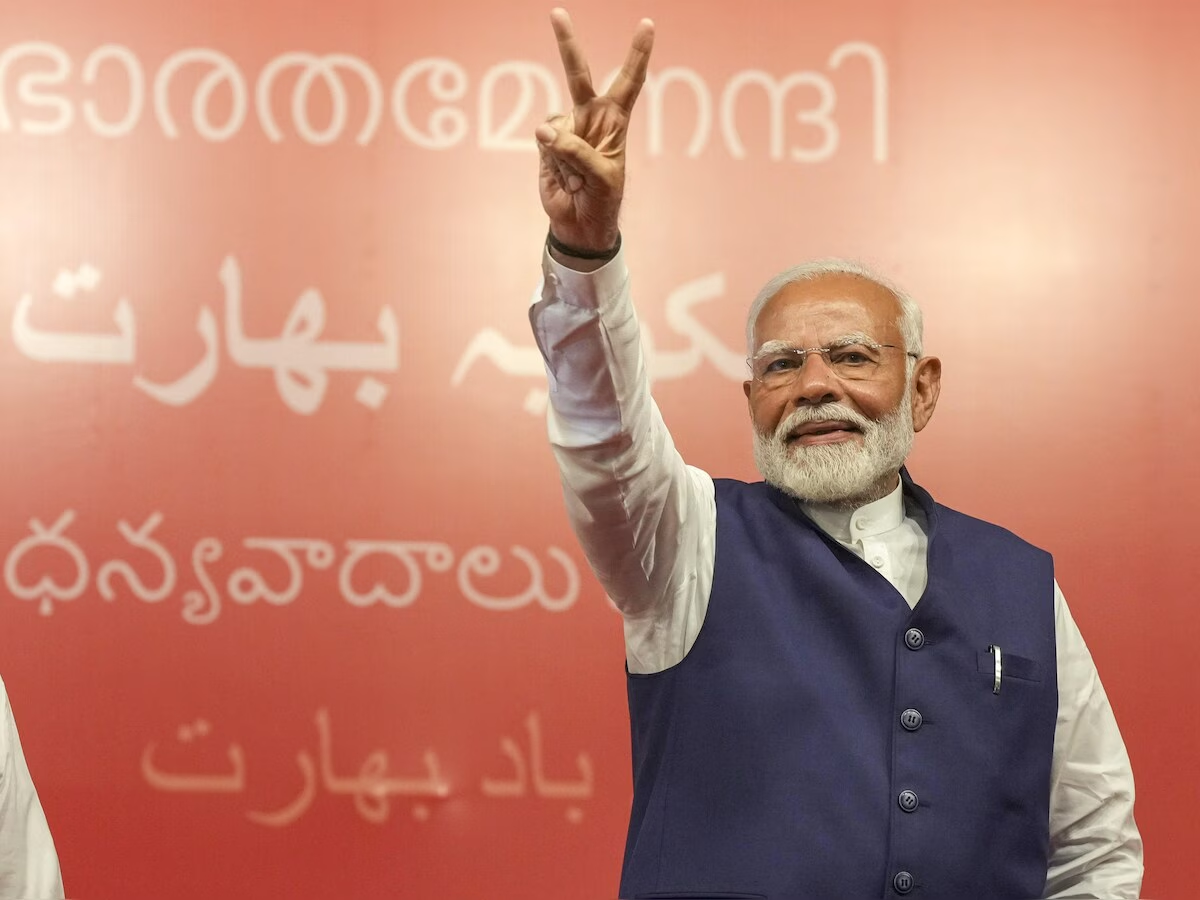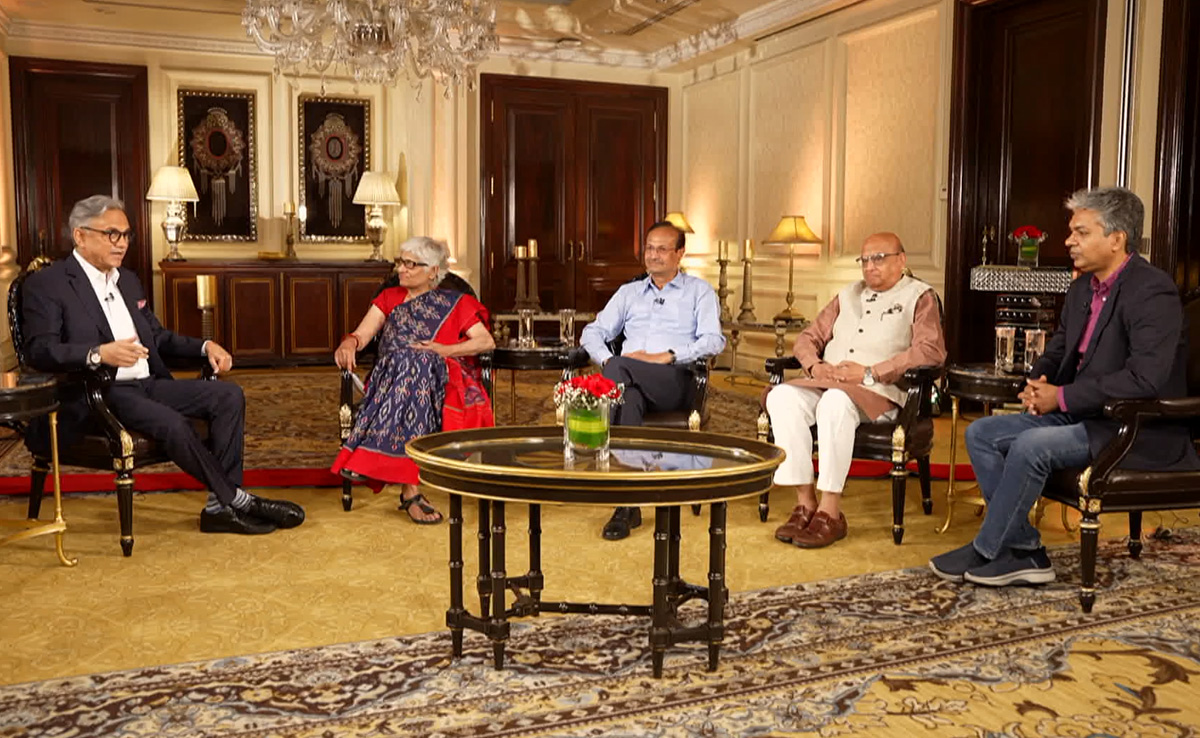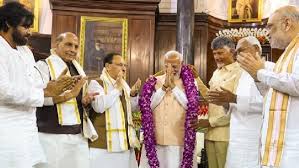Narendra Modi’s upcoming oath-taking ceremony as the Prime Minister of India is set to be a significant diplomatic event, reflecting his administration’s continued focus on regional cooperation under the ‘Neighbour hood First’ policy. Scheduled to take place at the Rashtrapati Bhavan, this ceremony will be attended by a host of dignitaries, including leaders from BIMSTEC (Bay of Bengal Initiative for Multi-Sectoral Technical and Economic Cooperation) member countries. This gathering underscore India’s commitment to fostering strong ties with neighboring nations.

Key Attendees: BIMSTEC Leaders
In line with the ‘Neighbourhood First’ policy, leaders from BIMSTEC countries—Bangladesh, Bhutan, Myanmar, Nepal, Sri Lanka, and Thailand—have been invited to attend Modi’s swearing-in ceremony. This move is seen as a strategic effort to reinforce regional solidarity and collaboration. The inclusion of these leaders highlights the importance India places on its relationships within the region and its desire to strengthen these bonds through various initiatives and partnerships.
Historical Context and Significance
Previous Ceremonies: Modi’s first term in 2014 set a new precedent when he invited leaders from the SAARC (South Asian Association for Regional Cooperation) countries to his swearing-in ceremony. This was a groundbreaking move that underscored India’s commitment to regional cooperation. The 2019 ceremony continued this tradition by extending invitations to BIMSTEC leaders, emphasising regional diplomacy’s continuity and importance in Modi’s administration.
Diplomatic Focus: The presence of BIMSTEC leaders at the 2024 ceremony is a clear indication of India’s strategic focus on regional diplomacy. BIMSTEC, which includes countries from South Asia and Southeast Asia, serves as a platform for economic and technical cooperation. By hosting these leaders, Modi’s administration aims to strengthen multilateral ties and address common challenges such as trade, security, and infrastructure development within the region.
Broader Implications of ‘Neighbour hood First’
Economic Cooperation: India’s ‘Neighbourhood First’ policy is not just about diplomatic gestures but involves substantive economic engagements. India has been actively involved in various bilateral and multilateral projects with its neighbours, focusing on enhancing trade, investment, and connectivity. These efforts are aimed at creating a more integrated and prosperous region, benefiting all member countries.
Security Collaboration: Security is another critical aspect of the ‘Neighbourhood First’ policy. India has been working closely with its neighbours to address security concerns, including terrorism, cross-border crime, and maritime security. Collaborative efforts in intelligence sharing, joint military exercises, and capacity building are key components of this security framework.
Cultural and People-to-People Ties: Cultural diplomacy plays a significant role in Modi’s regional strategy. India has promoted cultural exchanges, educational collaborations, and tourism initiatives to foster people-to-people connections. These efforts help build mutual understanding and goodwill, further strengthening the bonds between India and its neighbouring countries.

Future Prospects
Infrastructure Projects: Looking ahead, infrastructure development remains a priority under the ‘Neighbourhood First’ policy. India is involved in several cross-border infrastructure projects, including road, rail, and port developments, aimed at improving connectivity and facilitating trade within the region. These projects are expected to play a crucial role in South and Southeast Asia’s economic integration.
Sustainable Development: Sustainability is another focus area, with India collaborating with its neighbours on various environmental and climate change initiatives. Efforts to promote renewable energy, sustainable agriculture, and disaster resilience are essential components of India’s regional development agenda.
Multilateral Engagement: India’s engagement with regional organizations like BIMSTEC, SAARC, and the Indian Ocean Rim Association (IORA) highlights its commitment to multilateralism. By playing an active role in these forums, India aims to foster greater regional cooperation and address shared challenges collectively.
Conclusion
Narendra Modi’s oath ceremony, with the attendance of BIMSTEC leaders, is more than just a formal event; it is a reaffirmation of India’s ‘Neighbourhood First’ policy. This event highlights India’s ongoing efforts to strengthen regional ties through diplomatic, economic, security, and cultural engagements. As India continues to focus on regional cooperation, the prospects for a more integrated and prosperous South Asia and Southeast Asia appear promising.




2 Comments
Pingback: Modi Cabinet Reshuffle: 72 Ministers Inducted, Strategic Additions of 9 New Leaders
Pingback: 9 Killed, and 30 injured during Pilgrimage in Reasi: Dreadful Tale of terror attacks in J&K continues - INPAC Timesafter-a-shooting-attack-bus-full-of-hindu-pilgrims-falls-into-a-gorge-in-reasi-district-the-tell-of-terror-attack-continues-in-jammu